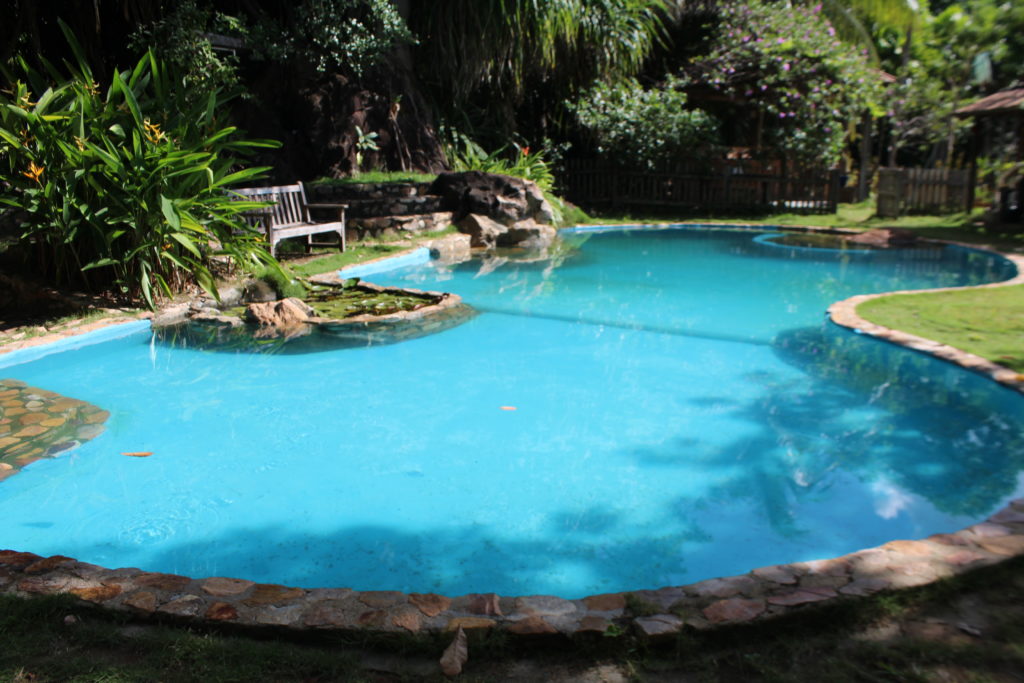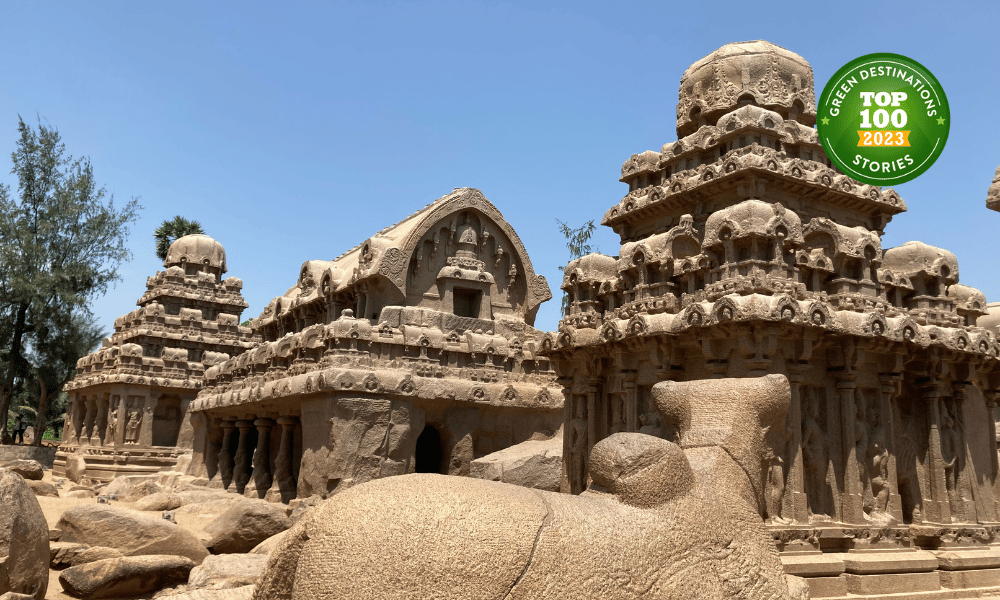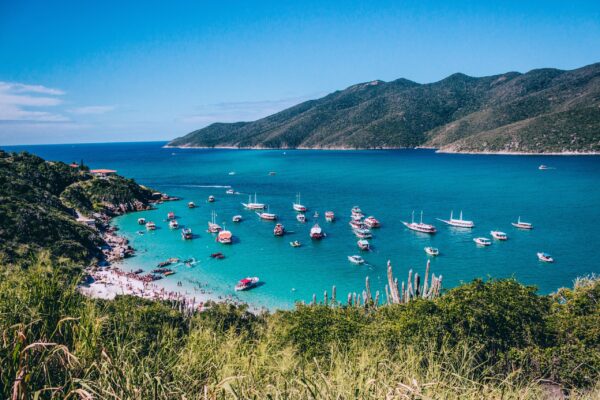India

INDIA is one of the most religiously and ethnically diverse nations in the world, with some of the most deeply religious societies RELIGIOUS and CULTURE. India packs an assortment of NATURE TRESURES: tropical beaches, numerous mountains, mosaics of grasslands, deserts … such an ideal country for nature lovers!
Not sure where to go?
Explore the options for a responsible trip
GOOD PLACES TO VISIT
Explore destinations that were certified for their sustainability efforts
GOOD BUSINESSES
Discover accommodations, restaurants, shops and attractions that are commited to responsible development

Historic and cultural heritage
In addition to the beaches, take the opportunity to visit the Casa de Taipa Museum and the Church of São Miguel do Arcanjo.
PROMO CODE:

Historic and cultural heritage
In addition to the beaches, take the opportunity to visit the Casa de Taipa Museum and the Church of São Miguel do Arcanjo.
PROMO CODE:

Historic and cultural heritage
In addition to the beaches, take the opportunity to visit the Casa de Taipa Museum and the Church of São Miguel do Arcanjo.
PROMO CODE:

Historic and cultural heritage
In addition to the beaches, take the opportunity to visit the Casa de Taipa Museum and the Church of São Miguel do Arcanjo.
PROMO CODE:
GOOD PRACTICE STORIES
Get inspired with stories from places and people that are acting for a fair and responsible tourism

Mamallapuram
Mamallapuram or Mahabalipuram located near Chennai on the shores of Bay of Bengal in South India is a UNESCO World Heritage Site and a popular destination. The destination is visited by over three million tourists annually. Therefore, like any other destination, over the years Mamallapuram has faced issues of overtourism and waste accumulation. This Good Practice Story explains how the heritage town professionally managed to segregate waste and became a litter free destination within a span of a few years.

Sargaalaya
Sargaalaya Arts and Crafts Village at Kerala, India is a purpose-built attraction to promote indigenous arts and crafts. The destination has promoted several unique initiatives for the resurgence of local economy and community empowerment. This Good Practice Story describe how the craft village assisted and helped the resurgence of local economy and to tide over the pandemic situation through various activities including organic farming, promotion of languishing arts, women empowerment and community involvement etc.
Sustainability
India, with a population of approximately 1.3 billion people, faces significant sustainability challenges. The country has made efforts to preserve its natural diversity, including the establishment of over 100 national parks and wildlife sanctuaries. Sustainable waste management and recycling programs are priorities, with India’s recycling rate increasing significantly over the past two decades. However, carbon emissions remain a pressing concern, given the growing energy demands and limited adoption of green energy solutions. India’s commitment to sustainability is evident but is still met with the challenge of transitioning to more environmentally responsible practices.
Travel tips from our editors

Getting around
Getting around India is an adventure in itself due to the country’s diverse terrain and transportation options. India’s extensive railway network is one of the most efficient ways to travel between cities and regions. Buses offer additional flexibility, especially for reaching more remote areas. In urban centres, like Delhi and Mumbai, you’ll find metro systems, buses, and taxis. It’s important to plan your routes and modes of transportation in advance to ensure a smooth journey and consider booking long-distance train or bus tickets ahead of time, especially during peak travel seasons. Embrace the organized chaos of Indian transportation, and you’ll discover the country’s rich tapestry while on the move.
Tourism & People
India is known for its rich cultural heritage, diverse geography, and historical landmarks, which attract tourists from all over the world. Additionally, it is home to several UNESCO World Heritage sites, diverse wildlife, and adventure tourism opportunities. Visitors are drawn to the country’s historic sites, such as the Taj Mahal and ancient temples, as well as its bustling markets and vibrant festivals. The people of India are known for their warm hospitality and cultural diversity, with each region offering unique traditions and cuisine.
Nature & Wildlife
India’s rich biodiversity and conservation efforts make it a global biodiversity hotspot. The country has established 87 National Parks, 13 Bioreserves, and over 400 wildlife sanctuaries. Its cultural reverence for animals like the Bengal Tiger and Asian Elephant fuels conservation efforts, and projects like Project Tiger and Project Elephant aim to protect these iconic species. The Kaziranga National Park, a UNESCO World Heritage Site, plays a crucial role in preserving the Great One-horned Rhinoceros. India’s seventeen Biosphere Reserves not only safeguard fauna but also protect unique flora, including the national flower, the lotus. Furthermore, trees hold cultural and religious significance, with hundreds protected as living monuments. India’s rich biodiversity and conservation efforts make it a global biodiversity hotspot.
Sustainability Recognitions
Brazil has 9 destinations featured in the Top 100 Sustainable Destinations 2021.

Other sustainability certifications can be seen here (English) and here (Portuguese).

Fernanda Rodak | Page Editor
“Brazil is a worldwide known hotspot for biodiversity as well as home to a multitude of cultural expressions. The natural and cultural heritage and immense variety of tourism experiences in the country are valuable assets for its competitiveness. Yet, as we envision a post Covid-19 era, sustainability in tourism becomes crucial to build resilience and guarantee the long-lasting health of Brazil’s ecosystems and well-being of the hosting communities. This would also ensure an active contribution of the country’s tourism sector to the Sustainable Development Goals.”
Visit other destinations nearby
Get in touch
Sign up to our newsletter
About
Contact
Internships
Privacy Policy
Support
We are a multicultural, creative and dedicated team working to promote sustainable tourism. Join us in our fight against the climate crisis, single-use plastics and over-tourism!
